News review - March 2018
The NHS is often used as a political football. It is often the subject of a march on Parliament. But it’s rare the two combine and are used as evidence that universal healthcare systems do not work. However, at the start of February, US president Donald Trump (pictured) tweeted about a march in support of the NHS, where protestors called for more funding. Mr Trump implied the march demonstrated discontent with the universal care model, which he said was championed by his political opponents, the Democrats.
Not true, said the focus of many of the marchers’ ire – health and social care secretary Jeremy Hunt. In a tweeted reply, Mr Hunt said he was proud of a universal system where patients were treated according to need and not the size of their wallet. NHS England chief executive Simon Stevens said the president had ‘got the wrong end of the stick’ and invited him to visit a hospital to see how well the system works when he comes to the UK.
Of course, the NHS has problems – during this winter there have been issues of access, with waiting times in A&E rising due to increased demand, and in elective care due to a temporary deferral of non-emergency elective care. In England A&E performance improved marginally in January compared with December and the previous January. NHS England’s monthly statistics showed A&E attendances were 5.5% higher than January 2017 and 85.3% were admitted, transferred or discharged within four hours. A year earlier – and coincidentally in December 2017 – the figure was 85.1%. The figures also showed there was a 4.3% rise in the number of elective patients starting treatment in the past 12 months – 88.2% had been waiting 18 weeks or fewer by the end of December, compared with 89.7% in December 2016.
Mirroring this growth in A&E activity, attendances at Northern Ireland emergency departments were 5% higher in December 2017 than a year earlier. Just under 68% of patients were seen within the four-hour target period – this was 2.3 percentage points lower than in December 2016. The biggest increase in attendance was in type 1 A&Es (up 5.7%), which also had the lowest performance (63% treated and discharged or admitted within four hours).
The lack of clarity over arrangements for healthcare after the UK exits from the European Union worries MPs. The Commons Health Committee called on Mr Hunt to provide greater clarity on his department’s post-Brexit plans. The Department of Health and Social Care should publish its contingency plans to protect patients, NHS services and the UK life science industry, it said. There was a need to protect the supply of medical products.
Meanwhile, NHS Employers, NHS Providers and the Shelford Group of leading academic medical centres, known collectively as the Cavendish Coalition, warned that fewer healthcare providers are planning to recruit staff from European Union countries. Its survey also said 41% of respondents now feel Brexit will have a negative effect on the workforce compared with 19% just after the vote.
The Department announced that health charges for temporary migrants will double to £400 a year. The surcharge for students and those with visas through the Youth Mobility Scheme will rise from £150 to £200 a year. It is paid by those from outside the European Economic Area who wish to live in the UK for more than six months. The Department said this could raise an extra £220m for the NHS. It estimates that the NHS spends an average of £470 a year treating each surcharge payer. The new charges are due to be introduced later this year.
Barking, Havering and Redbridge University Hospitals NHS Trust has been placed in special measures for financial reasons. NHS Improvement said this was following a reported rapid and significant deterioration in its finances over the past few months. A financial improvement director has been appointed to help the trust, and the organisation will draw up and deliver a plan to improve its finances, the oversight body added.
Trusts are cautious over the Getting it right first time (GIRFT) programme’s ambition to save £1.4bn a year by 2020/21, according to NHS Providers. However, providers support the scheme and believe it is an important first step to tackling unwarranted variation. A small survey said that GIRFT should support trusts to deliver productivity improvements and national bodies should set realistic targets for savings together with timescales that reflect wider pressures, including financial and workforce issues.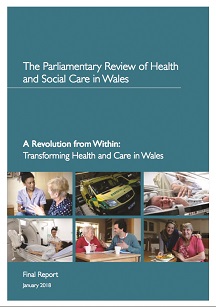
A £100m fund will be used to implement the recommendations of the Welsh Parliamentary review of health and social care. The review recommended greater integration and an increased role for value-based care. Health secretary Vaughan Gething said the funding, first announced in the Welsh Budget, would not be used to offset pressures that should be managed through increased efficiency. Instead, it would drive forward the report’s recommendations and invest in a small number of projects that would have the greatest impact in developing and delivering new models of transformed services.
NHS England estimates it will cost £2.4m to review thousands of items of misdirected clinical correspondence, according to a National Audit Office report. It is believed that at least 374,000 clinical letters, including test results, which were sent to the wrong GP, were then forwarded to Capita. The firm is the current provider of primary care support services but has no contractual responsibility for redirecting clinical correspondence. NHS England has identified more than 1,800 high-priority items, such as test results, and after an initial review sent more than 18,000 letters to the correct GPs for review. No harm to patients has yet been identified. However, GPs are still erroneously sending clinical correspondence to Capita at a rate of 5,000-10,000 items a month. NHS England is planning an information campaign to urge GPs to return correspondence about patients not registered at their practice to the sender to comply with legislation and NHS England information governance.
The Scottish Parliament Health and Sport Committee called on the Scottish government to remove barriers to allow the NHS to use innovative technology in the delivery of care to patients. It said some services should be delivered centrally and the government should adopt a ‘once for Scotland’ approach in its forthcoming digital care strategy.
Month in quotes
‘The Democrats are pushing for universal healthcare while thousands of people are marching in the UK because their U system is going broke and not working. Dems want to greatly raise taxes for really bad and non-personal medical care. No thanks!’
US president Donald Trump brings the NHS into a domestic dispute over universal healthcare…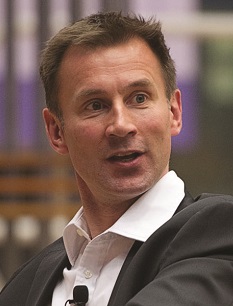
…But health and social care secretary Jeremy Hunt defends the NHS, pointing out deficiencies in the US system
‘I may disagree with claims made on that march but not ONE of them wants to live in a system where 28m people have no cover. NHS may have challenges but I’m proud to be from the country that invented universal coverage – where all get care no matter the size of their bank balance.’
'When the committee agreed to carry out this inquiry, members expected to investigate different ways groundbreaking and innovative technologies could make dramatic changes to the way the health and social care sector operates. Instead, we’ve heard how barriers are preventing change.’
Scottish Parliament Health and Sport Committee convener Lewis Macdonald asks the government to ‘be bold’ in backing innovative technology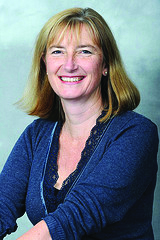
‘A disorderly UK exit could result in an immediate impact on the supply of essential medicines and medical products, both in the UK and the EU27.’
Commons Health Committee Sarah Wollaston calls for clarity on the government’s Brexit preparations and the position of the remaining 27 nations
From the HFMA
The NHS could learn a lot from the attempts in New York State to introduce integrated healthcare underpinned by a reformed payment system, according to HFMA chief executive Mark Knight. He has been blogging on a trip to the United States to attend a symposium on the Delivery System Reform Incentive Programme. The programme aims to reform Medicaid, the healthcare system available to those on lower incomes, and reduce its cost.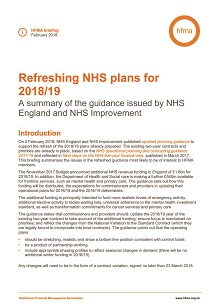
The HFMA has produced a briefing on the update to the 2017/19 planning guidance, published at the end of last week. Refreshing NHS plans for 2018/19: a summary looks at the key issues in the updated planning guidance for HFMA members. These include: how the additional revenue funding announced in the November Budget is to be allocated; contract and operating plan requirements; and the financial framework. The four-page briefing also looks at integrated care systems (formerly accountable care organisations/systems).
In a complementary blog, HFMA immediate past president Mark Orchard (pictured) looks at the planning guidance from the perspective of one of the emerging early integrated care systems. The refreshed guidance may include name changes, but also provides a national solution for binding patches together, he says.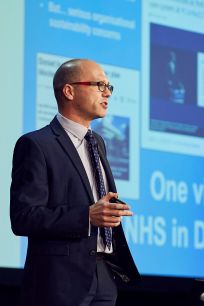
The association also published its regular briefing on financial reporting, which looks at changes and developments in accounting standards. A further briefing on the year-end is based on issues raised at the recent pre-accounts planning conferences.
Related content
We are excited to bring you a fun packed Eastern Branch Conference in 2025 over three days.
This event is for those that will benefit from an overview of costing in the NHS or those new to costing and will cover why we cost and the processes.